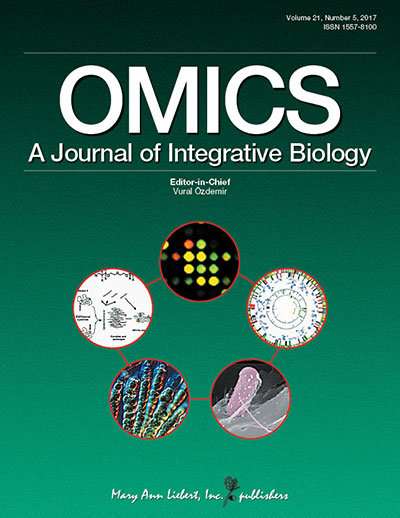Microbiota-gut-brain axis is at epicenter of new approach to mental health

The functional gut microbiome provides an exciting new therapeutic target for treating psychiatric disorders such as anxiety and trauma-related conditions. Innovative methods for studying and intervening in gut microbiome composition and activity to treat mental illness and maintain mental health are presented in a timely review article that is part of the "Microbiome Special Issue: Food, Drugs, Diagnostics, and Built Environments" of OMICS: A Journal of Integrative Biology, the peer-reviewed interdisciplinary journal published by Mary Ann Liebert, Inc., publishers.
In the article "The Gut Microbiome and Mental Health: Implications for Anxiety- and Trauma-Related Disorders," Stefanie Malan-Muller, Stellenbosch University (Stellenbosch, South Africa) and coauthors review the emerging findings of microbiome research in psychiatric disorders. They encourage the mental health community to embrace microbiome science as a new frontier of biological psychiatry and postgenomic medicine.
"Culturomics: A New Kid on the Block of OMICS to Enable Personalized Medicine," an article coauthored by Manousos Kambouris, The Golden Helix Foundation (London, U.K.) and University of Patras (Patras, Greece) and colleagues, examine the new field of culturomics and how it may widen the scope of microbiology and expand its contributions to diagnostics and personalized medicine. The researchers also explore potential applications in agriculture, environmental sciences, pharmacomicrobiomics, and biotechnology innovation and the value of the Big Data produced by culturomics.
Kieran O'Doherty, University of Guelph, Canada, and coauthors discuss the opportunity and challenges for integrating human microbiome research into clinical practice to improve the diagnosis and treatment of patients with inflammatory bowel disease. The authors describe how patient-specific microbiome data could help guide therapeutic decision-making in the article entitled "Human Microbiome and Learning Healthcare Systems: Integrating Research and Precision Medicine for Inflammatory Bowel Disease."
Vural Özdemir, MD, Ph.D., DABCP, Editor-in-Chief of OMICS, has commented that "microbiome projects are booming and unraveling the microbial dark matter from humans and animals to built habitats on our planet. Microbiome research will continue to bring about insights into human health, disease susceptibility, and mechanisms of person-to-person variations in response to food, drugs, vaccines, and other health interventions, thus supporting precision medicine and the discovery of innovative diagnostics."
More information: Stefanie Malan-Muller et al. The Gut Microbiome and Mental Health: Implications for Anxiety- and Trauma-Related Disorders, OMICS: A Journal of Integrative Biology (2017). DOI: 10.1089/omi.2017.0077


















